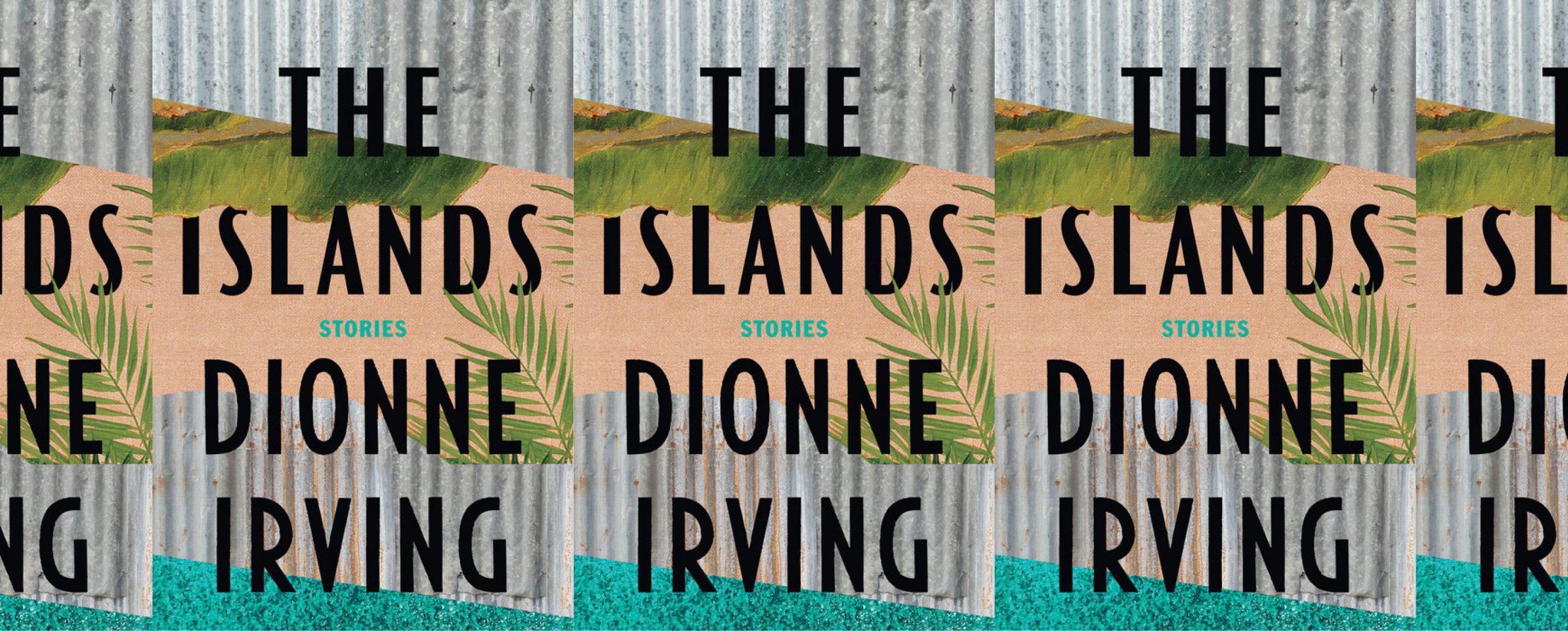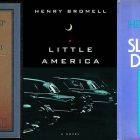Marriage and The Islands

Dionne Irving’s The Islands, out today, is that rare short story collection that jumps from narrator to narrator, from place to place, from year to year, and still remains unified. Though our narrators are deeply different, they are all Jamaican women and girls who live in Florida or Cape Cod or London, who all carry a similar past with them and wonder how to be in light of it. The wounds of colonization, the love of a culture, the promise and peril of immigration—all these haunt the narrators as they move through the world.
What does it mean to be an islander? From the very beginning of the book this question is apparent. The epigraph to the collection features a famous John Donne quote from “Meditation 17”—“No man is an island, / entire of itself; / every man is a piece of the continent, / a part of the main.”— twinned with a quote from Bob Marley’s “Smile Jamaica” that soothes, “We’re gonna help our people, help them right / O Lord, help us tonight! / Cast away that evil spell / Throw some water in the well / And smile!” Donne and Marley together frame crucial questions about the part’s relation to the whole—what does it mean to be a part of something elusive? What do we owe to each other?
Two unlikely stories, both reflecting on marriages that are beginning to crumble, complicate any ideas of unity or community. If “no man is an island,” as Donne writes, the women in Irving’s “Florida Lives” and “The Cape” begin to wish they were. Being married, being yoked to someone else through disruptive change, might totally change a relationship, and these protagonists agree.
“Florida Lives” is the first story in the collection, one that follows a Jamaica-born woman and her African American husband as they move from a life of debt and struggle in San Francisco, CA, to Apopka, FL, to work for a “fledgling fern company.” At first, their life appears totally idyllic: “In Florida we made less money, but it went so much further. San Francisco broke was Central Florida middle class and we could live like the bougie frauds we always wanted to be. Here, our dinners were feasts: expensive cheese, twenty-five-dollar bottles of wine, meat without the bright orange Reduced for Quick Sale sticker.” Their affection for Florida dims quickly, however, when their tacky neighbors Crystal and Ricky cement themselves in their lives, dropping in with a regularity that alarms the narrator. But Crystal and Ricky offer them salvation.
Over time the boundaries between nature and their house in Florida blurs, with humidity and stickiness and, eventually, bats in their attic, bats that spawn baby bats that no exterminator will kill, per Florida law. The couple begins fighting, and drinking. Their marriage is dragged apart. “We became everything we hated, everything we had been in San Francisco. Not all at once, but a little at a time, until we woke up from our separate corners and tried to imagine what we loved or even what we liked.” The story gets murky here—it takes on the tone of waking up from a blissful nap to realize it’s grown dark and cold outside. The rude awakening of Florida chokes the life from their dreams, from their marriage.
It’s Ricky that offers a way out of one problem—the baby bats. Miraculously, he has poison in his truck and cavalierly sprays the attic, getting just the baby bats since the adults “won’t come back once they find the babies are gone.” It’s a poignant statement on what the narrator takes as a Florida lesson: Crystal and Ricky “understood what it meant when you needed a second chance or a third or a fourth. They understood something about us or about me that my husband didn’t’—wouldn’t. Maybe my husband has seen that. I was a Florida person after all.” It’s this realization that cements it—in the morning, the narrator and her husband split up the house and their marriage, ending their Florida lives. But for one more night, they sit in the backyard and watch the bats emerge like “a thick black sheet,” moving away to another life.
The story’s ending is emotional, but, like “The Cape,” mutes the pain of splitting up. “The Cape” follows another marriage in steady decline: the narrator, Mina, moves with her husband, Neel, to their Wellfleet, MA, house after Neel gets in an accident—a fireworks-related accident that leaves him shuffling around in pain. The accident transforms his relationship to her, to himself: “He shrugged all the time now. Shrugged when she asked him what he wanted for dinner, when she asked if he was tired, when she asked if he wanted to play cards or drive into town to see a movie. For the first time, he looked old.”
But unlike Florida in “Florida Lives,” a land of new beginnings, the Cape has a history for Mina—it’s not a place for starting over completely, but for living into a rich past. “Her father’s people were one of the first Black families on the Cape, the Jamaican grandchildren of freed slaves who came on Captain Lorenzo Dow’s banana boats in the 1870s. Who settled in Wellfleet and taught their sons, who taught their sons, to cull the fish in the northern Atlantic the way they had in the Caribbean…They were Cape people, locals who lived there all year-round.” And it’s not just her larger family house, but the fact that Neel bought the Cape house for her, “a promise to her parents that he would take care of her by wrapping her in real estate.”
Secluded from their communities in Boston, however, Mina begins to bear the brunt of Neel’s injuries, his almost absolute silence. It weighs on her until the very end of the story. She reflects on her naivety, that vowing to love each other “in sickness and in health” meant something more like “nursing each other through a bad cold or food poisoning,” not something of this magnitude. Mina “had thought of a million different reasons to go. And only two to stay. Love and guilt. And when she repeated these things in her head, they didn’t sound like real reasons but rather abstract concepts that had nothing to do with what she was feeling, which was that her life was over and by the time Neel did die, there would be nothing left for her.”
Both stories end of the cusp of a leaving, a quiet resignation that has yet to mature to the ultimatums of the next day. Mina makes seven sandwiches, one for every day of the week, wrapping them carefully and hiding them “behind a tub of potato salad. That way, he wouldn’t find them right away.” In “Florida Lives,” the couple wait outside for the bats to leave, drinking together for one last night. Both stories suggest that marriage and commitment aren’t evergreen concepts, but a vow that must be made and remade. This is not a sentimental idea—both “Florida Lives” and “The Cape” suggest that sometimes a person might wish to be an island, to slough off from the mainland and stake out a tiny claim of space for themselves. Irving’s narrators insist that sometimes vows have run their course, that sometimes there’s no greater freedom than letting go.



